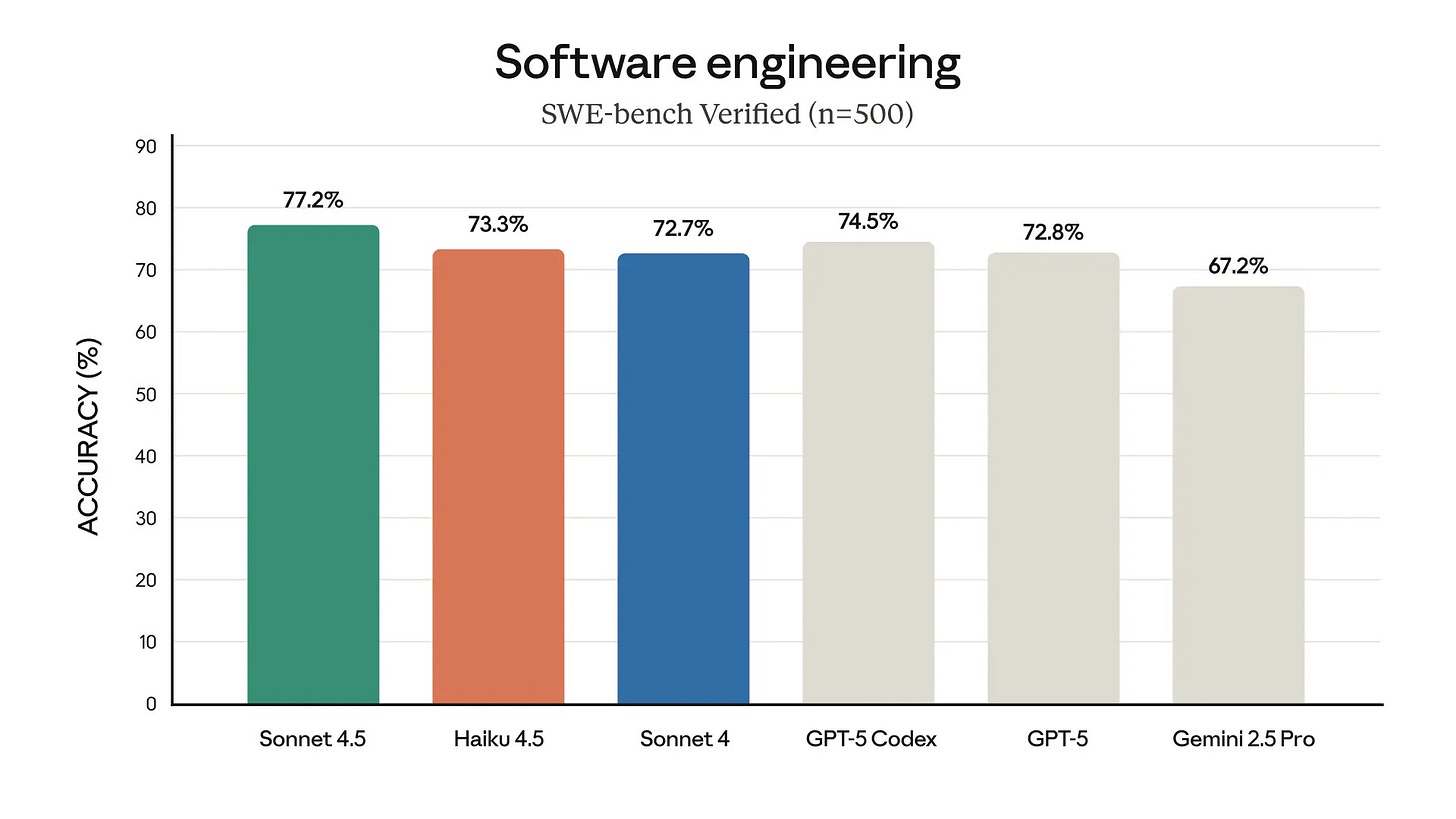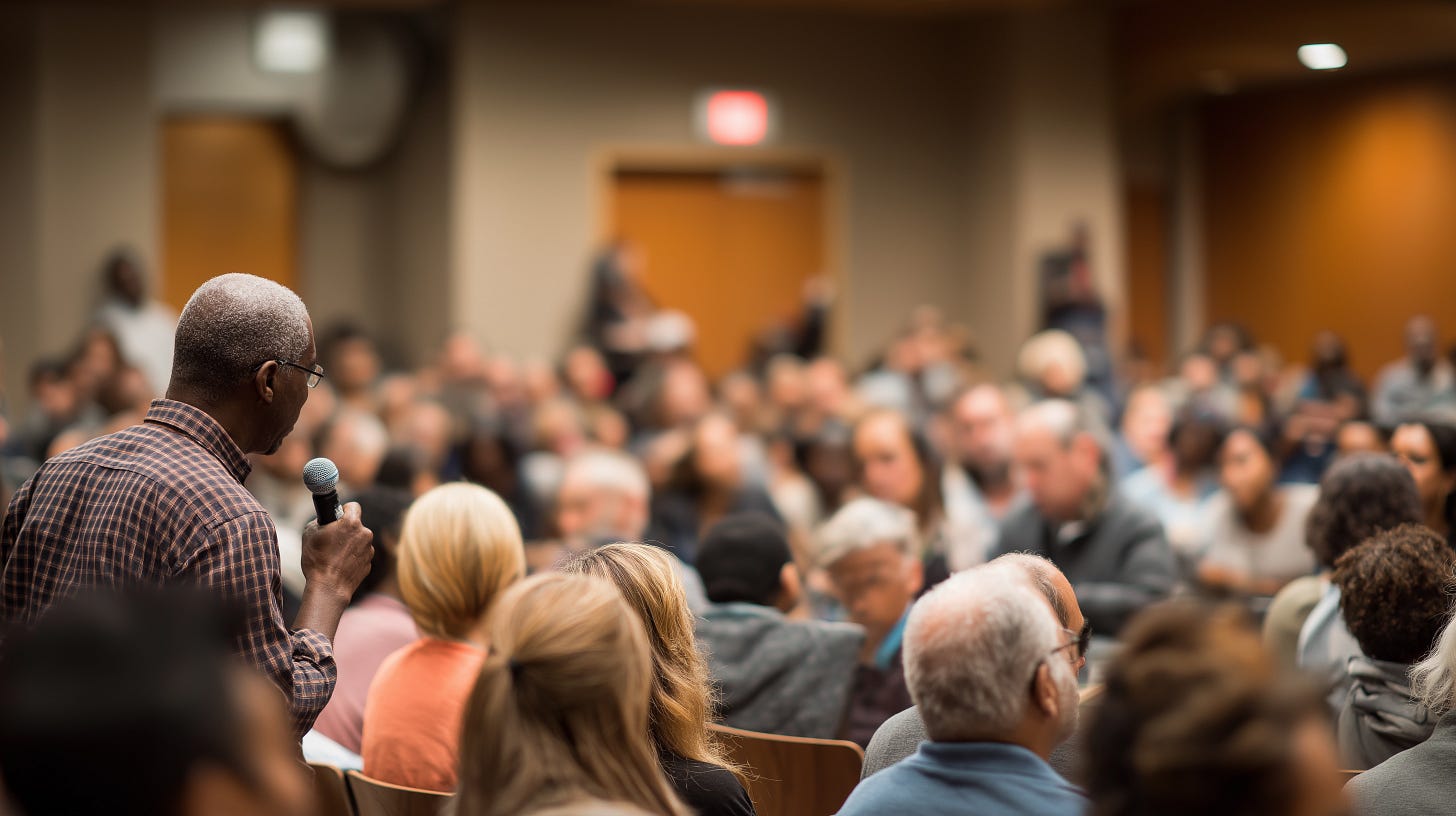ChatGPT After Dark
Sam Altman discussed coming updates to ChatGPT, including a friendlier personality, as well as “erotica for verified adults.”
The big picture:
People are really, really focused on the erotica thing. And on the one hand, I get it - clearly “AI erotica” falls far short of building AGI, and it’s an easy dunk for cynics.
But consider the alternative: as personal or sensitive usage of AI becomes more common, it’s unclear that companies like OpenAI should be the moral arbiters of what adults are allowed to chat about.
I see parallels to the culture wars that continue to rage over terms like “free speech” and “censorship” on social media, which is a reminder that almost no big tech company has this figured out.
That said, there is a fine line here (and I don’t mean to suggest otherwise) - parasocial relationships and emotional attachments are a real concern with modern chatbots, and we ought to have shared norms (if not laws) around how far these products can be optimized and marketed.
Elsewhere in AI anxiety:
South Korea rolled back its AI textbook program after just four months following complaints about inaccuracies and extra workload.
AI is replacing workers in India’s business process management sector, which employs 1.65M people, with conversational AI startup LimeChat saying it automated 5,000 jobs.
Sora videos depicting dead celebrities sparked backlash from families, with OpenAI saying reps of recently deceased public figures can request likenesses be blocked.
Judges in Latin America are struggling to rule on cases of AI-generated images even as courts increasingly adopt AI tools to clear case backlogs.
The G20’s Financial Stability Board says regulators are in the early stages of tracking risks posed to the financial system by AI’s rapid adoption.
And Wikipedia says AI is causing a dangerous decline in human visitors to the site.
Elsewhere in OpenAI:
OpenAI has proposed a “sign in with ChatGPT” feature to some companies, which could transfer the cost of using OpenAI’s models to their customers.
Black hole theoretical physicist Alex Lupsasca is the first person to join the OpenAI for Science initiative led by Kevin Weil.
OpenAI is making a five-year business plan to meet $1T+ spending pledges, currently booking ~$13B in ARR with 70% from consumer ChatGPT use.
A new Expert Council on Well-Being and AI with eight experts will help guide OpenAI’s work on ChatGPT and Sora.
And OpenAI and Broadcom agree to co-develop and deploy 10GW of custom AI chips to run OpenAI’s models over four years in a deal worth multiple billions.
Claude Haiku 4.5
Anthropic has released Claude Haiku 4.5, its newest lightweight model that matches the performance of Sonnet 4 while operating at one-third the cost and twice the speed.
Between the lines:
What was cutting-edge AI capability in late 2024 is now available as a budget option in early 2025, illustrating the breakneck pace at which AI capabilities are becoming commoditized and accessible - this marks Anthropic’s third major launch in just two months (following Sonnet 4.5 and Opus 4.1).
Anthropic is positioning Haiku as part of an “agent toolbox” where multiple models work together: sophisticated models like Sonnet handle complex planning while lightweight Haiku agents execute tasks in parallel.
The release comes at the same time as Skills for Claude, a new usage pattern with folders of instructions, scripts, and resources that Claude can load. Though simple, the Skills setup likely unlocks additional agentic capabilities for Claude Code.
Elsewhere in frontier models:
Google introduced Veo 3.1, with improved audio output and stronger prompt adherence, and rolls out new updates to its AI video editor Flow.
Microsoft unveiled MAI-Image-1, its first text-to-image AI model developed in-house, and says it “excels” at photorealistic imagery, like lighting and landscapes.
Sora 2 users can now generate videos up to 15 seconds in the app and on the web, while Pro users can generate videos up to 25 seconds on the web.
And OpenAI says GPT-5 instant and GPT-5 thinking reduce political bias by 30% compared to its prior models, and show “greater robustness to charged prompts”.
Elsewhere in the FAANG free-for-all:
Apple executive Ke Yang, who was recently appointed to lead the AKI team developing AI-driven web search for Siri, is leaving for Meta.
Google updated NotebookLM’s Video Overviews with six new Nano Banana-powered visual styles and a “Brief” format to help users quickly grasp core ideas.
Meta announced a partnership with Arm to power AI ranking and recommendation systems across its family of apps using Arm-based data center platforms.
xAI is building world models for use in gaming and robotics, and has hired two AI researchers from Nvidia to work on them.
And Thinking Machines Lab co-founder Andrew Tulloch joins Meta, which has called an August report that he was offered a $1.5B+ package by Zuckerberg “ridiculous”.
The data center backlash
As AI infrastructure investment accelerates, small towns across America are increasingly rejecting data center proposals - and in at least one case, becoming the target of lawsuits.
What’s new:
Saline Township, Michigan, initially rejected a 250-acre data center proposal, only to face a lawsuit from the developer claiming exclusionary zoning. The town ultimately settled, unable to sustain a prolonged legal battle despite overwhelming resident opposition.
Other communities are taking more aggressive stances: St. Charles, Missouri enacted a year-long moratorium after a secretive 440-acre proposal near drinking water wells, while Lordstown, Ohio is proposing an outright permanent ban despite welcoming a Stargate-affiliated manufacturing facility.
The backlash marks a significant shift in public awareness and sentiment about data centers’ downsides - including water and electricity consumption, noise pollution, lack of long-term job creation, and rising energy costs for residents - even as state governments eagerly court AI investments.
Elsewhere in AI data centers:
Meta is investing $1.5B+ to set up a 1GW data center in El Paso, Texa and is working on an almost $30B financing package for its Louisiana data center.
Google will invest $9B in South Carolina through 2027 to scale up data centers in Berkeley County and Dorchester County, with another $15B going to India to set up a 1GW data center in the southern state of Andhra Pradesh.
Nvidia partnered with startup Firmus on Project Southgate, a ~$2.9B undertaking to build 150 MW of renewable energy-powered AI data centers across Australia.
An investment consortium including BlackRock, Nvidia, xAI, and Microsoft will acquire Texas-based Aligned Data Centers from Macquarie in a $40B deal.
UK-based cloud provider Nscale signed an up to $14B deal with Microsoft to deploy ~104K Nvidia GB300 chips in Texas within 18 months and 12,600 GPUs in Portugal.
And CoreWeave and AI coding startup Poolside plan a 500-acre, natural gas-powered data center on a Texas ranch, with Poolside raising $2B at a $14B valuation.
Elsewhere in AI geopolitics:
California Governor Gavin Newsom signed AB 1043, which requires device makers and app stores to verify users’ ages, and SB 243, mandating safety protocols for AI chatbot companions.
The Senate passed a measure requiring Nvidia and AMD to prioritize US customers over China for advanced AI chip sales as part of its annual defense policy bill.
China tightened customs checks on chip imports, starting with Nvidia’s H20 and RTX Pro 6000D, after urging local companies not to buy Nvidia’s products.
And White House AI czar David Sacks accused Anthropic of running a “regulatory capture strategy“ based on fear-mongering in response to co-founder Jack Clark’s AI policy essay.
Things happen
Anthropic is on track to hit $9B in annual revenue by end of 2025. ByteDance’s Doubao became China’s most popular AI app in August. Andrej Karpathy unveils nanochat, a full-stack LLM deployable in 4 hours. Anduril’s AI-powered helmet will replace Microsoft’s IVAS for the Army. Salesforce unveils Agentforce 360 and positions Slack as an “agentic OS.” Slack is testing an AI-based Slackbot, rolling out end of 2025. Young people in China turn to AI chatbots for therapy. Cobots are bringing automation to small US factories. Indonesia’s film industry embraces AI tools for Hollywood-style movies. Figure AI’s Figure 03 robot, its first mass-producible humanoid. SemiAnalysis launches InferenceMAX, an open-source LLM benchmark. Reddit’s AI suggests users try heroin. Lawyer caught using AI while explaining to court why he used AI. Man stores AI-generated robot porn on government computer, loses nuclear secrets access. What happened when AI came for craft beer. Commonwealth Fusion Systems partners with DeepMind on Torax plasma simulator. Pinterest adds tools to limit AI-generated content in feeds. Microsoft only lets you opt out of AI photo scanning 3x a year. Beliefs true for software but false for AI. After the AI boom: what might we be left with? How much revenue justifies the current AI spend? State of AI Report 2025. LLMs are getting better at individual characters.







I think AI will have most impact in gaming more than any sector lmk your thoughts
Insightful. I particularly resnated with your point about companies not being moral arbiters. It's a cruical discussion in the AI space, especially with new modalities, and you've captured the dilemma perfectly. Balancing user autonomy with ethical concerns is a very complex problem for these platforms.